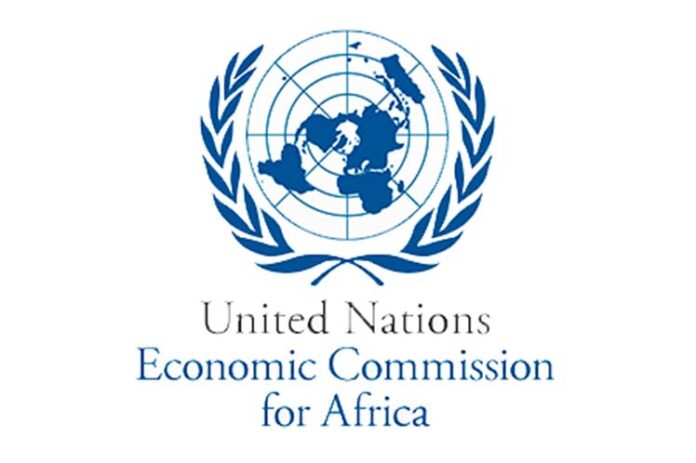The United Nations Economic Commission for Africa (UNECA) has urged Africa to find the right policies and processes to facilitate migration and protect the rights of migrants in the continent.
Mrs Vera Songwe, the Executive Secretary, UNECA, made the call in her remarks on the official opening of the first Regional Review meeting on the Global Compact for Safe, Orderly and Regular Migration (GCM) in Africa on Wednesday.
The two-day meeting is being hosted by Morocco, virtually.
Songwe, who is also the Under-Secretary-General, was represented by Ms Thokozile Ruzvidzo, the Director, Gender, Poverty and Social Policy Division, UNECA.
The executive secretary stressed that international migration played a critical role in the continent’s fight to develop and improve welfare, peace, stability and provide jobs for its growing population.
According to the International Organisation for Migration (IOM), international migration is the movement of persons away from their place of usual residence and across an international border to a country of which they are not nationals.
Also, the United Nations Department of Economic and Social Affairs (UN DESA) defines an “international migrant” as “any person who changes his or her country of usual residence”.
The definition excludes movements that are due to “recreation, holiday, visits to friends and relatives, business, medical treatment or religious pilgrimages”.
The under-secretary-general stressed that Africa should find the right policies irrespective of migrants’ statuses, and transform migration into a win-win situation for member states.
She noted that finding the right policies required policy dialogue and partnership among all stakeholders.
“Migration has played a pivotal role in shaping the world as we know it today.
“Migrants have been essential in the development of many modern states, have shaped labour dynamics across countries, and are a cornerstone for the global economy.”
She also emphasised that migration and human mobility were closely linked with the opening up of trade and reiterated that the African Continental Free Trade Area (AfCFTA) marked a significant milestone in realisation of the free movement of people, goods, and capital.
She, however, explained that excessive border controls and immigration restrictions increased the costs and risks of migration.
“The AfCFTA is indeed a key plank in achieving progress towards enhanced availability and flexibility of pathways for regular migration.
“Member states recognise that irregular migration can be reduced by easing restrictive immigration and visa practices to boost circular migration for trade and thereby unlock economic opportunities for millions of African nationals.
“Progress in regional integration through Regional Economic Communities, improved cross-border transport options and infrastructure, and growing opportunities in circular cross border trade are positive developments,” she said.
Songwe also attributed the restrictions on mobility to the COVID-19 pandemic, which she noted posed a huge challenge for the implementation of the GCM.
According to her, diaspora remittances holds the greatest potential for reducing poverty and household vulnerability as they contribute to better housing, improved access to services, local construction sector and improved food security.
This, she said, was because they were sent directly to family members of migrants.
The executive secretary, however, noted that remittances had declined in 2020, to as much as 5.4 per cent, as a result of the pandemic.
“The slow progress on vaccination has a direct impact on the movement of people and slows down migration, which has a huge development impact by limiting the flow of remittances.
“The faster we vaccinate our people on the continent, the faster we will be able to ensure that cross-border movement restrictions come down and economies dependent upon remittances are able to recover.”she said.
She pointed out that migrants faced challenges accessing social protection benefits, because they risked the loss of entitlement to social security benefits in their countries of origin due to their absence.
Songwe also noted that they encountered restrictive conditions under the social protection system of the host country at the same time.
She, however, commended several African countries for having established mechanisms for the portability of social entitlements.
She further reiterated the commitment of the ECA’s sub-regional offices to work closely with regional economic communities to support and strengthen migration policies, actions and regional programmes in migration governance.
UN Commission calls for policies on migration
RELATED ARTICLES




